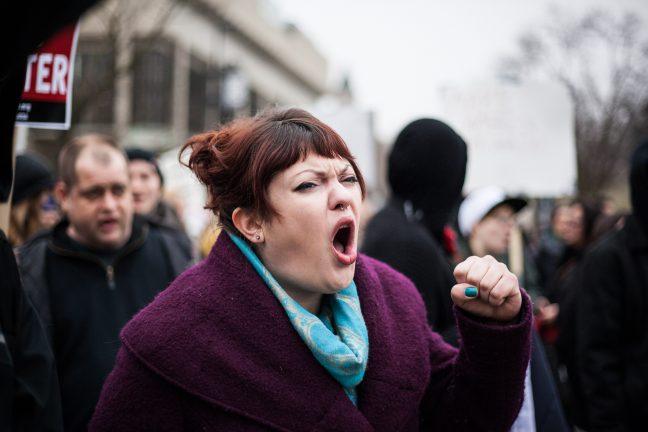Last week, the University of Wisconsin System Board of Regents voted nearly unanimous for the “Commitment to Academic Freedom and Freedom of Expression” policy change that bars students from protesting speakers on campus they disagree with. The official document states “protests and demonstrations that interfere with the rights of others to engage in or listen to expressive activity shall not be permitted and shall be subject to sanction. Those sanctions, after two to three times of protesting, include suspension and expulsion of students involved.
Ironically, the meeting was protested by the Stout Student Association.
The trend to protest, and to punish protesters, has been going on for a while now. At University of California-Berkeley, students cancelled a speech by Milo Yiannopoulos to come and speak to a student organization. Just last year, a protest of Ben Shapiro here at Madison drew some controversy, and is believed to be a big reason this law even came about. It’s a hard line to draw, between “freedom of speech” to speak controversially, and “freedom of speech” to demonstrate against those controversial speakers. At what point does protesting mean the other side loses their freedom of speech?
I was at the UW Student Representatives meeting this weekend at University of Wisconsin-Stout, who recently came out with a statement (right before the vote) urging the Board of Regents to consider their decisions, stating “We hope that the Regents will equally prioritize the concerns of students in this process and to give all parties fair opportunity to express their concerns about this proposal and the processes it establishes.” We discussed new statements now that the vote has been done, and what exactly this new policy change means for our respective schools.
Tony Evers, a candidate for the Wisconsin 2018 governor race — and the only regent to vote against the resolution — said “I am fearful we will become speech police in reverse and we will essentially be on the altar of freedom of speech we’re going to be sacrificing freedom of speech”.
According to the resolution, the chancellor will have the authority to punish students who violate the resolution. Would the chancellor then get to define what “acceptable” forms of protesting are? Can we trust them to be fair, or will it be an obvious way to push their personal opinions on issues, allowing protests for some things, but not for others?
While being the only “no” vote that day, his concerns are shared by others. Kat Kerwin, Associated Students of Madison Legislative Affairs Chair, stated, “the Freedom of Speech Resolution passed by the Board of Regents this past week not only weakens the power of our system and it’s ability to protect students by taking issue stances but it also signifies a massive attack on student power and student autonomy in our state.”
Sometimes you have to look at things in the bigger picture, especially when it comes down to freedom of speech. Our own representatives, in the Wisconsin State Assembly, were drafting up a resolution to “protect freedom of speech” as they were condemning a controversial video that came out a few weeks ago about police brutality.
The irony, and hypocrisy, speaks for itself: It’s “freedom of speech” — until you disagree with it. If outright protesting is not acceptable, if kneeling is not acceptable, if videos are not acceptable, I ask the representatives, the administration and the students of Wisconsin schools who support this: What is?
Yogev Ben-Yitschak (ybenyitshak@wisc.edu) is a sophomore majoring in marketing and digital studies


